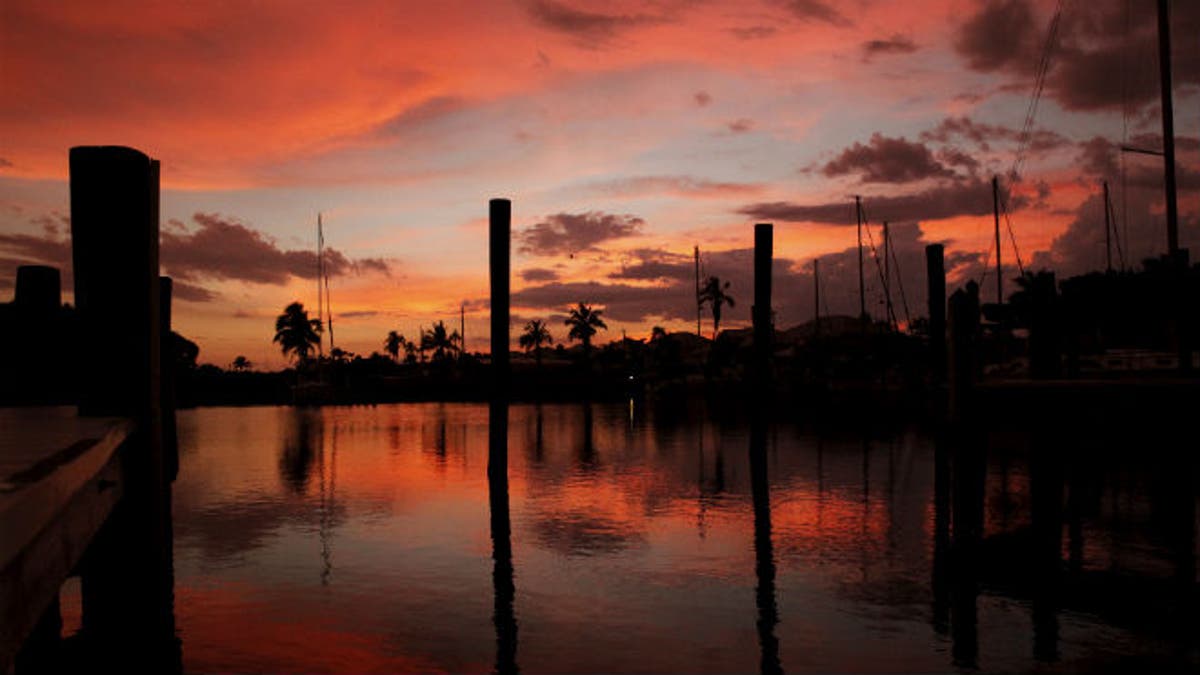
The sun sets over a marina in Fort Myers Beach, Florida June 20, 2015. REUTERS/Jim Bourg
Take caution if you’re headed to the Florida beach this summer: A potentially deadly species of bacteria found in saltwater has infected at least eight people and killed two people so far this year, according to state officials.
The bacterium, Vibrio vulnificus, blooms in Florida’s warm May to October climate. ABC News reported that there were 32 recorded cases of infection in that state last year, and seven deaths.
RELATED: Beat 16 Summer Health Hazards
The good news: Most of us are at a low risk of death, or even harm, from the bug, which some people are calling “flesh-eating” but is rarely that dangerous to watergoers, unless you have an underlying immune problem, like liver disease, and/or an open cut or wound. In that case, coming into contact Vibrio vulnificus could lead to inflammation, ulcers, and, if the infection worsens, amputation and even death.
Even if you’re not immunocomprised, note that the bacterium does proliferate in raw shellfish caught in Florida—particularly in oysters, according to the Centers for Disease Control and Prevention (CDC)—so “if you don’t cook your shellfish properly, you’re setting yourself up for trouble,” says Aileen Marty, MD, professor of infectious diseases at Florida International University. Think gastrointestinal issues like vomiting and stomach pain at best, and at worst, septicemia, a.k.a an infection the blood.
RELATED: 14 Most Dangerous Summer Foods
Again, Dr. Marty stresses, most people have nothing to fear from wandering into the Florida waters this summer. But if you think you may have been infected, head to your doctor ASAP for antibiotics, and to make sure you’re protected, follow these tips from the CDC and the Florida Department of Health:
• Do not eat raw oysters or other raw shellfish.
• Wear protective clothing (e.g., gloves) when handling raw shellfish.
• Cook shellfish (oysters, clams, mussels) thoroughly.
• Eat shellfish promptly after cooking and refrigerate leftovers.
• Avoid exposure of open wounds or broken skin to warm salt or brackish water, or to raw shellfish harvested from such waters.
• Individuals who are immunocompromised should wear proper foot protection to prevent cuts and injury caused by rocks and shells on the beach.
RELATED: 14 Types of Food That Can Make You Sick
